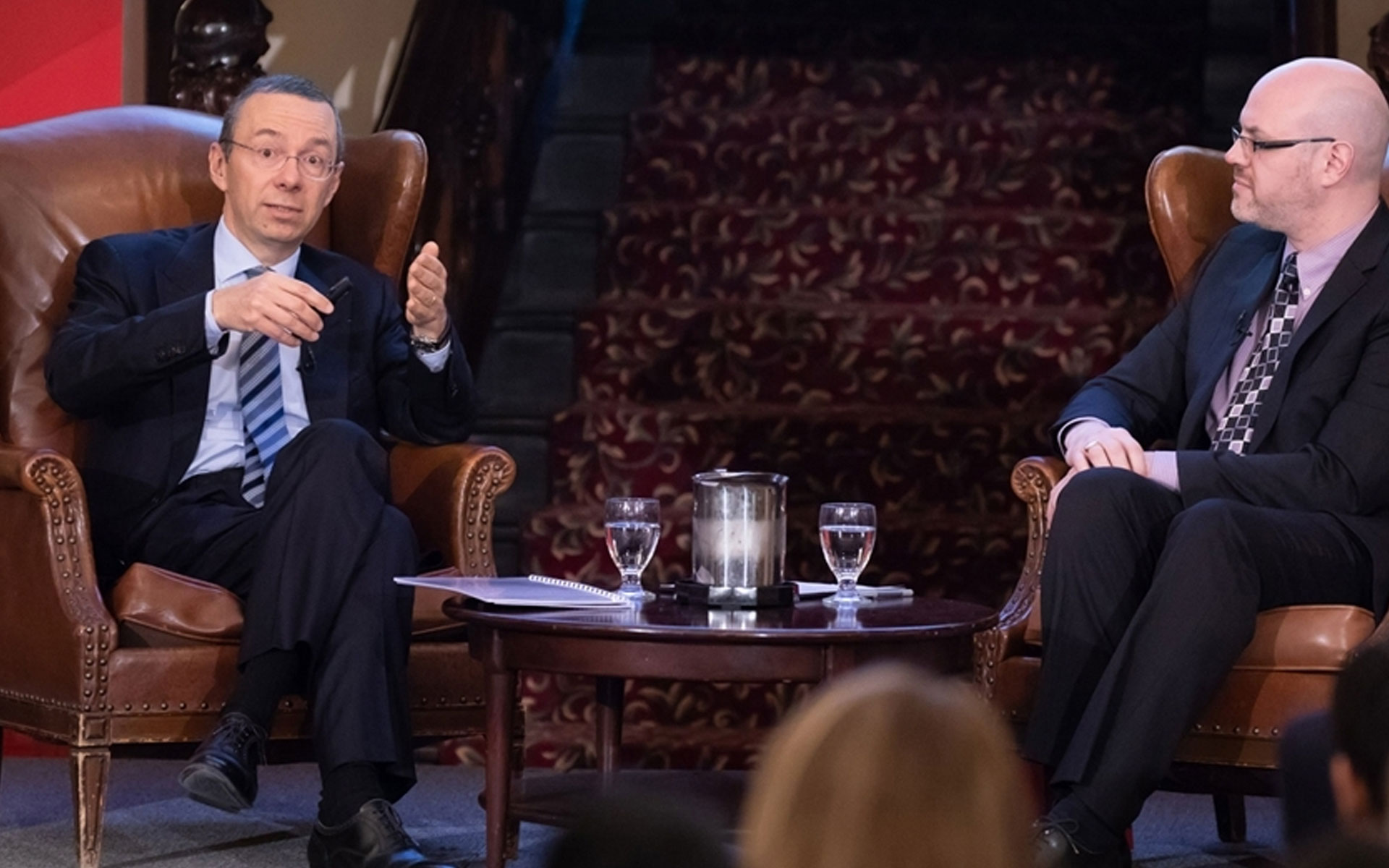Anyone can edit Wikipedia, but that’s different than everyone actually doing it. Based on an open collaboration model, Wikipedia hosts millions of articles that can be created and edited by anyone, anywhere, yet counts just over 300,000 active editors.
A closer look at the people who contribute to Wikipedia shows that they play a powerful role in shaping the world-wide information ecosystem, generating positive feedback loops that leave other topics in the dust, under-researched and unread. Their impact on the most visited educational resource on the planet affects us all.
Over the past 20 years, Wikipedia has revolutionized the way that knowledge is produced and dramatically increased access to information. Wikipedia’s English-language site alone includes more than 6.4 million articles, all of them free to access. For comparison, the once ubiquitous print version of Encyclopaedia Britannica contained 40,000 pages and came with a thousand-dollar price tag.
Desautels Faculty of Management Professor Kai Zhu points out in his recent research that while Wikipedia articles are longer than their analogues in Encyclopedia Britannica, many aren’t of high quality and their coverage is uneven across both geographical areas and knowledge domains. That’s only the tip of the Wikipedia iceberg when it comes to how information functions and how users navigate it on the networked platform.
Imbalance among contributors
Though Wikipedia’s decentralized system has its benefits, especially regarding access to information, several disadvantages have arisen from its lack of central oversight, says Zhu. Volunteer editors self-select for the job and need to have spare time and internet access to make their contributions. Most editors are white, male, and technologically inclined. This affects what information is included, how it is interpreted, and therefore the way that information becomes knowledge.
Geographical knowledge disparity in Wikipedia articles is a main concern, says Zhu: “There are many more articles about North America and Europe, and far fewer about other places. It is much easier to learn about American history on Wikipedia than it is to learn about South Africa’s history and culture, even though it is an amazing place.”
That unevenness can have concrete impacts. More highly developed Wikipedia pages attract more attention—about 12 per cent more on average. They have more links to other pages on Wikipedia and elsewhere online, and search engines like Google often include Wikipedia pages in the top results for a subject. The increased attention results in subsequent contributions to these articles, continuously improving them in a positive feedback loop. However, when an article is just a stub, or placeholder, none of this happens.
Global input, local impact
“People use Wikipedia when they are planning to travel, so if towns have more rich content, then the number of visitors and revenue in the local tourism industry could increase,” Zhu offers as an example of Wikipedia editors’ impact. “If there is little content about a place on Wikipedia, people will not know what is there for tourism.”
This geographical bias is partly the result of a higher concentration of editors in North America and Europe. In his research, Zhu conducted analysis of 46,000 Wikipedia articles that were updated through a collaboration between the Wikipedia Education Foundation and university course instructors in Canada and the United States.
This collaboration aimed to expand and improve Wikipedia articles by asking students to update them as part of course assignments. Collectively, these student-edited pages have received hundreds of millions of page views. Zhu’s analysis of the revision history and page views of these articles has shown that they are not simply passive recipients of reads—they shape the way that Wikipedia’s users navigate its information ecosystem.
Knowledge networked
Not only do Wikipedia articles connect to each other through a series of hyperlinks, but most feature extensive citations that link to source material that spans the web. This network of interlinkages can help a reader gain a fuller understanding of a topic and its context, while also creating specific pathways that users navigate, hopping from one article to another (and sometimes down a wiki rabbit hole.)
The biases of Wikipedia editors can influence people’s attention in some fairly subtle ways.
When more popular Wikipedia articles are linked to less popular ones, it causes a spillover effect that can increase readership by as much as 22 per cent. Zhu calls this phenomenon “attention contagion,” explaining that the biases of Wikipedia editors can influence people’s attention in some fairly subtle ways.
“If Justin Trudeau’s Wikipedia page has a link to a particular professor, that will bring attention to that professor’s page,” says Zhu, adding that a clear gender gap can also been observed in these references: “Women are typically represented less within these networks of links; the effect of this is a structural bias. There is less visibility for women and their work.”
To address gaps in knowledge production on Wikipedia, Zhu argues that more coherent approaches are needed. One way to do this is through “edit-a-thons” that bring together people from underrepresented groups. These events work to update specific topics with new information and strengthen their network of links to other articles. Edit-a-thons have also been used to improve biographical articles on women in STEM and broaden coverage of Black history.
Wikipedia could also improve existing tools that allow editors to search for articles that are important but underdeveloped, says Zhu, leading to increased focus on specific areas of need.
“The fundamental tension underlying the open contribution model is whether this system can self-correct,” says Zhu. “This type of intervention is needed to complement decentralized production. Left to itself, this system will have positive feedback loops and vicious circles.”














